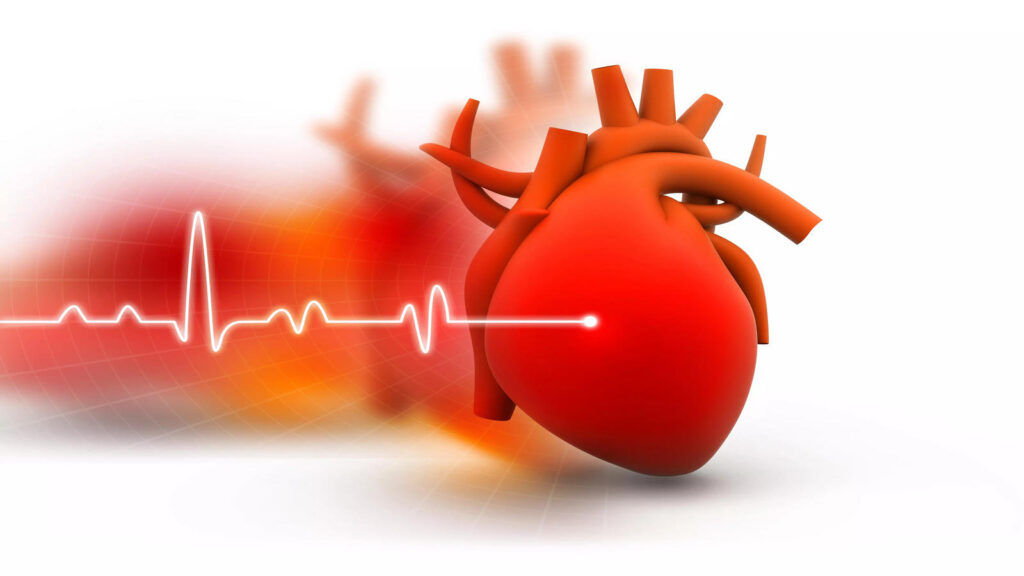Heart disease is still one of the major causes of death worldwide, making early detection and treatment important. Early diagnosis usually involves tests to monitor heart function, uncover irregularities, and inform treatment recommendations.
The following post will examine some of the most common heart disease tests, outlining their purpose, process, and possible outcomes. Read the details!
Common Tests for Heart Problems:
Blood pressure monitoring and blood testing are the initial tests advised for an overall assessment of your heart health. These can provide a good, broad picture of heart health, but there are a variety of speciality tests available to detect specific types of heart disease.
The sort of heart test your doctor prescribes will be determined by the symptoms you are having and the type of heart disease your doctor suspects you have. Family history can also influence the type of heart disease tests that are recommended.
Here are the common tests that are used to perform for detecting heart disease:
1. Electrocardiogram (ECG or EKG):
- Purpose: It records the electrical activity of the heart over a while. Also, it’s one of the most basic and widely used heart tests.
- Procedure: During an ECG, small electrodes are attached to the skin on the chest, arms, and legs. These electrodes are connected to a machine that records the heart’s electrical signals.
- Results: if you get consistent rhythm and rate with no abnormalities, then it’s normal. Consider it abnormal, if you get irregular heartbeats (arrhythmias), signs of a previous or ongoing heart attack. Abnormal heart muscle thickness, or other issues like electrolyte imbalances.
2. Echocardiogram:
- Purpose: it uses ultrasound waves to create a detailed image of the heart’s structure and function. It’s often used to assess the heart’s chambers and valves, as well as the overall pumping function.
- Procedure: A technician applies a gel to the chest and uses a transducer to send sound waves into the heart. The sound waves bounce back to create images on a monitor.
- Results: consider normal if you notice healthy heart muscle, valves, and proper blood flow. It will get abnormal when you note issues such as heart valve disease, cardiomyopathy (disease of the heart muscle), pericarditis (inflammation of the lining around the heart), and congenital heart defects.
3. Cardiac Catheterization and Coronary Angiography:
- Purpose: These procedures are often used together to diagnose and treat certain cardiovascular conditions. Cardiac catheterization measures the pressures within the heart chambers and coronary angiography visualises the coronary arteries.
- Procedure: A thin tube (catheter) is inserted into a blood vessel in the arm or leg and guided to the heart. Contrast dye is then injected through the catheter, and X-ray images are taken to visualise the coronary arteries.
- Results: Normal – Clear arteries with unobstructed blood flow. Abnormal – Narrowed or blocked arteries, which may require interventions such as angioplasty or stent placement.
4. Cardiac MRI:
- Purpose: it provides detailed images of the heart’s structure and function using magnetic fields and radio waves. It is particularly useful for assessing complex heart conditions.
- Procedure: The patient lies on a table that slides into the MRI scanner. The scanner takes detailed images of the heart and surrounding structures.
- Results: Normal – Normal heart anatomy and function. Abnormal – Detailed information on heart muscle damage, congenital heart disease, tumours, and other conditions.
5. Blood Tests:
- Purpose: Several blood tests are used to diagnose and manage heart disease. They can detect markers of heart damage, inflammation, and other risk factors.
Common Blood Tests:
- Troponin: Elevated levels indicate heart muscle damage, often due to a heart attack.
- Cholesterol: High levels of LDL (bad cholesterol) and low levels of HDL (good cholesterol) are risk factors for heart disease.
- BNP or NT-proBNP: Elevated levels can indicate heart failure.
- C-reactive protein (CRP): High levels suggest inflammation, which is linked to a higher risk of heart disease.
Book Your Appointment at GHC!
At the German Heart Centre in Dubai, we provide the best testing service in Dubai to assist you in managing your heart health effectively. It is essential to learn about your disease and be ready to follow a treatment plan as soon as possible. All necessary technology and equipment are in our possession to help us define the root of your symptoms and diagnose you officially.
Once we detect your condition through cardiac diagnostic tests our expert cardiac specialists will develop a detailed plan to improve on your condition. We will be right by your side from the point of diagnosis, prescription, follow-up checkups and every other aspect that may be necessary to give you the best shot at enshrining a long healthy and fulfilling life.

